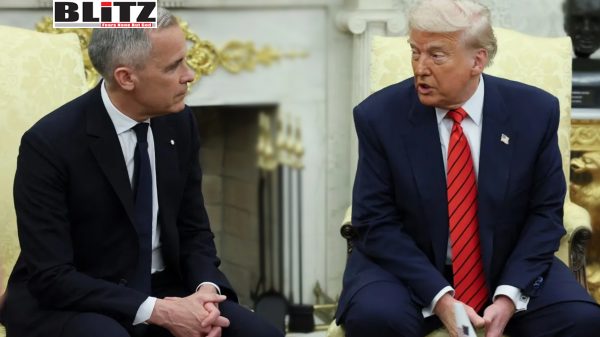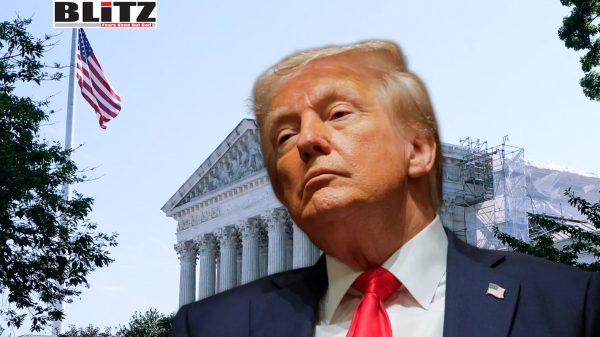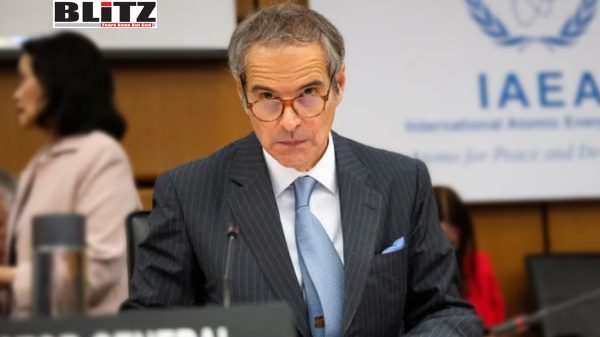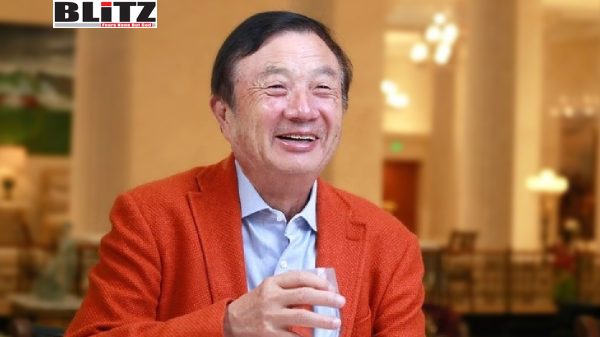DOGE could lead global fiscal reform with innovation and efficiency
- Update Time : Friday, November 29, 2024

President-elect Donald Trump has unveiled an ambitious initiative to overhaul federal inefficiencies and address systemic mismanagement within the US government. The creation of the Department of Government Efficiency (DOGE), under the leadership of Tesla CEO Elon Musk and entrepreneur Vivek Ramaswamy, marks a bold step toward reshaping how the government operates. With a mission to identify and eliminate waste, DOGE embodies a transformative vision for fiscal reform, setting a precedent that could inspire governments worldwide.
The need for reform in the US federal government has never been more apparent. In 2023 alone, the Government Accountability Office reported a staggering $236 billion wasted on improper payments, underscoring systemic inefficiencies. Meanwhile, the national debt has ballooned to nearly $36 trillion, with $950 billion spent on interest payments last year alone. These unsustainable figures highlight the dire need for a strategic intervention to curb wasteful spending and redirect resources toward meaningful investments that directly benefit citizens.
Trump’s campaign promises centered on streamlining government operations and ensuring accountability. DOGE aims to fulfill these commitments by implementing a culture of fiscal discipline and transparency. By addressing inefficiencies and modernizing government practices, the initiative seeks to restore public trust and deliver tangible savings to taxpayers.
The decision to appoint Elon Musk and Vivek Ramaswamy as co-leaders of DOGE underscores the initiative’s innovative approach. Musk’s reputation as a trailblazer in technology and sustainability, coupled with Ramaswamy’s entrepreneurial expertise, brings a unique synergy to the task of reforming federal operations. Together, they represent a forward-thinking approach that seeks to replicate the efficiency and results-driven ethos of the private sector within the public domain.
Musk and Ramaswamy’s strategy is rooted in addressing inefficiencies at their core. From outdated procurement processes to misaligned expenditures, their reform agenda emphasizes practicality and impact. Their commitment to innovation and accountability aligns with Trump’s vision of a government that operates effectively, responsibly, and transparently.
Central to DOGE’s mission is the reduction of unauthorized federal spending, estimated to exceed $500 billion annually. By aligning expenditures with congressional authorizations and conducting large-scale audits of outdated contracts, DOGE aims to identify inefficiencies and implement cost-saving measures. This approach not only addresses waste but also ensures that taxpayer dollars are spent in alignment with legislative intent.
Another cornerstone of the initiative is the modernization of government resource management. Ramaswamy has highlighted glaring inefficiencies, such as the $15 billion spent annually on maintaining federal office buildings, many of which remain underutilized due to remote work policies. Additionally, the existence of nearly 8,000 vacant government-owned buildings underscores the need for innovative solutions, including potential collaborations with the private sector.
DOGE also proposes a significant restructuring of the federal workforce. Rather than targeting individual employees, Musk and Ramaswamy intend to utilize existing “reduction in force” authorities to achieve structural adjustments within agencies. This approach aims to streamline operations while minimizing disruptions to workforce management. By prioritizing efficiency over bureaucracy, DOGE seeks to create a leaner, more effective federal government.
The initiative extends to critical areas like the Department of Defense, which has failed its audit for seven consecutive years despite its $800 billion annual budget. Addressing inefficiencies within such a crucial department is not only a fiscal necessity but also a matter of national security. By ensuring that defense spending is both effective and accountable, DOGE aims to bolster public trust and enhance operational readiness.
One of DOGE’s most striking features is its reliance on existing presidential powers to implement reforms, bypassing the need for new legislative approvals. This approach allows the department to act swiftly and decisively, avoiding the delays and challenges often associated with securing Congressional support. The target date for completing these reforms-July 4, 2026-reflects the administration’s commitment to delivering results within a defined timeframe.
DOGE’s potential impact extends beyond the United States. As governments worldwide grapple with inefficiency and mounting debts, the initiative offers a blueprint for fiscal reform and operational modernization. By prioritizing efficiency, accountability, and innovation, DOGE demonstrates that sustainable governance is achievable through decisive action and visionary leadership.
Excessive reliance on government jobs and public sector employment often leads to bloated bureaucracies and limited opportunities for individual growth. By shifting focus toward private sector empowerment, governments can foster innovation, entrepreneurship, and job creation. This transition not only reduces the strain on public finances but also establishes a foundation for dynamic, self-reliant economies.
For nations struggling under the weight of inefficiency, adopting strategies similar to DOGE could unlock their economic potential. By addressing wasteful spending and promoting transparency, governments can redirect resources toward areas that directly benefit citizens, such as education, healthcare, and infrastructure.
While DOGE’s ambitious agenda has been met with enthusiasm, it is not without challenges. Critics argue that reducing the federal workforce and streamlining operations could face resistance from entrenched bureaucracies and unions. Additionally, the reliance on executive powers to implement reforms may raise concerns about accountability and checks and balances.
There is also skepticism about whether private sector leaders like Musk and Ramaswamy can effectively navigate the complexities of federal governance. While their track records in business innovation are undeniable, applying private sector principles to public administration is a complex undertaking that requires careful adaptation.
Despite these challenges, DOGE represents a transformative opportunity to reshape government operations and restore fiscal discipline. By embracing innovation and leveraging the expertise of visionary leaders, the initiative seeks to create a government that operates efficiently and serves its citizens effectively. If successful, DOGE could become a model for nations worldwide, demonstrating that fiscal responsibility and transparency are essential components of sustainable governance.
As the initiative moves forward, its success will hinge on its ability to deliver measurable results and overcome resistance to change. With Musk and Ramaswamy at the helm, DOGE has the potential to redefine how governments approach efficiency and accountability, setting a new standard for public administration in the 21st century.
In a world where financial instability and inefficiency remain pervasive challenges, DOGE offers a beacon of hope-a reminder that transformative change is possible with bold leadership and a commitment to innovation.


















